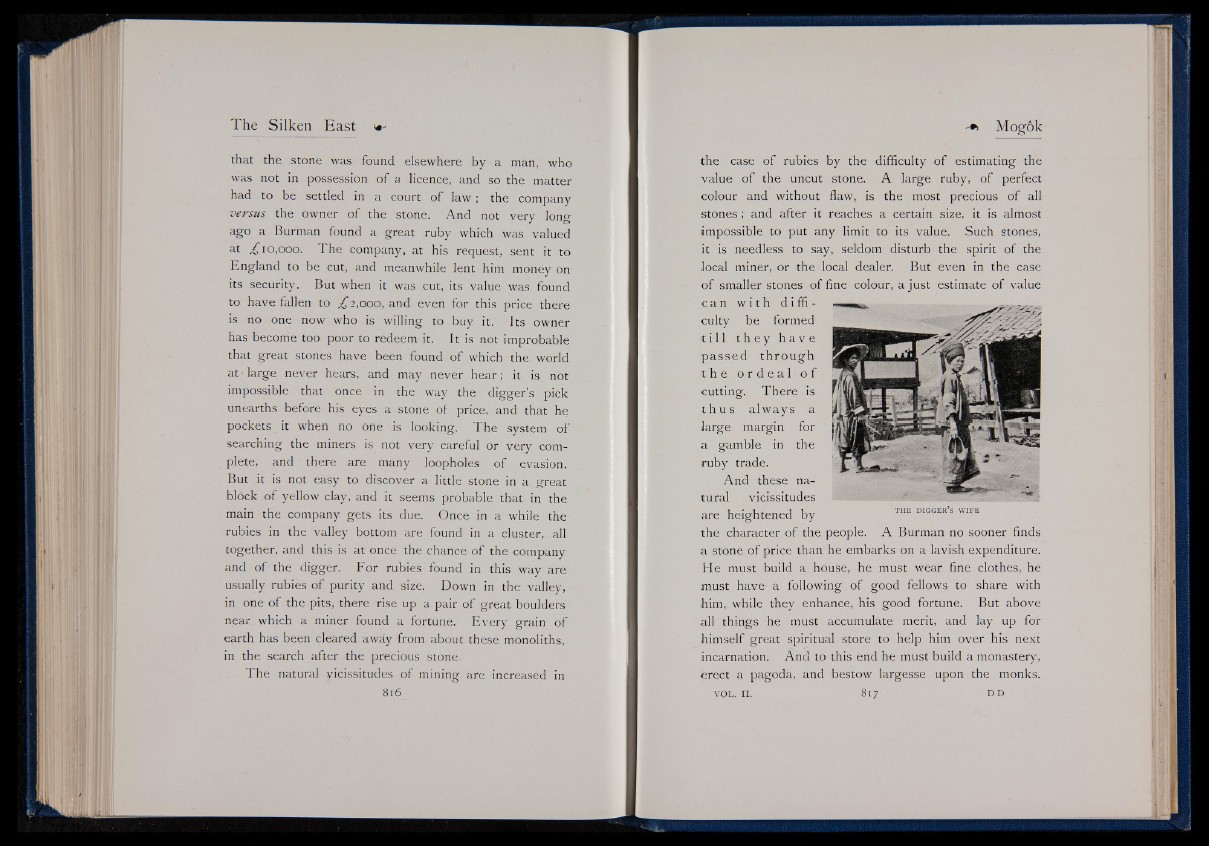
that the stone was found elsewhere by a man, who
was not in possession of a licence, and so the matter
had to be settled in a court of law; the company
versus the owner of the stone. And not very long
ago a Burman found a great ruby which was valued
at ¿10,000. The company, at his request, sent it to
England to be cut, and meanwhile lent him money on
its security. But when it was cut, its value was found
to have fallen to ¿2,000, and even for this price there
is no one now who is willing to buy it. Its owner
has become too poor to redeem it. It is not improbable
that great stones have been found of which the world
at large never hears, and may never hear; it is not
impossible that once in the way the digger’s pick
unearths before his eyes a stone of price,' and that he
pockets it when no one is looking. The system of
searching the miners is not very careful or very complete,
and there are many loopholes of evasion.
But it is not easy to discover a little stone in a great
block of yellow clay, and it seems probable that in the
main the company gets its due. Once in a while the
rubies in the valley bottom are found in a cluster, all
together, and this is at once the chance of the company
and of the digger. For rubies found in this way áre
usually rubies of purity and size. Down in the valley,
in one of the pits, there rise up a pair of great boulders
near which a miner found a fortune. Every grain of
earth has been cleared awáy front about these monoliths,
in the search after the precious stone.
The natural vicissitudes of mining are increased in
816
the case of rubies by the difficulty of estimating the
value of the uncut stone. A large ruby,, of perfect
colour and without flaw, is the most precious of all
stones ; and after it reaches a certain size, it is almost
impossible to put any limit to its value. Such stones,
it is needless to say, seldom disturb the spirit of the
local miner, or the local dealer. But even in the case
of smaller stones of fine colour, a just estimate of value
c a n wi th diffi-
culty be formed
t i l l t h e y h a v e
p a s sed through
t h e o r d e a l o f
cutting. There is
thus always a
large margin for
a gamble in the
ruby trade.
And these natural
vicissitudes
are heightened by THE DIGSER’s WIFE
the character of the people. A Burman no sooner finds
a stone of price than he embarks on a lavish expenditure.
He must build a house, he must wear fine clothes, he
must have* a following of good fellows to share with
him, while they enhance, his good fortune. But above
all things he must accumulate merit, and lay up for
himself great spiritual store to help him over his next
incarnation. And to this end he must build a monastery,
erect a pagoda, and bestow largesse upon the monks.
v o l . 11. 817 DD